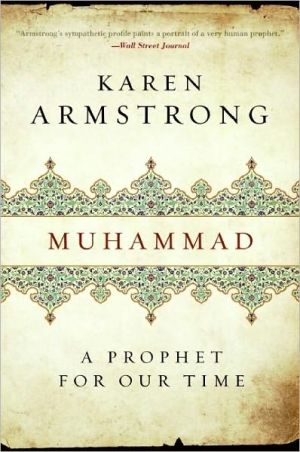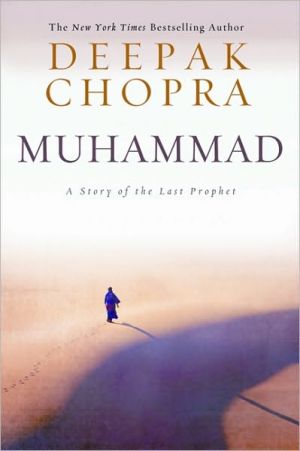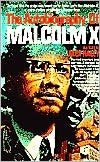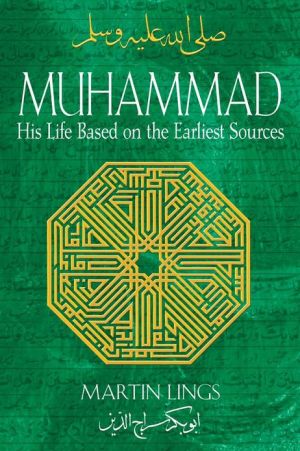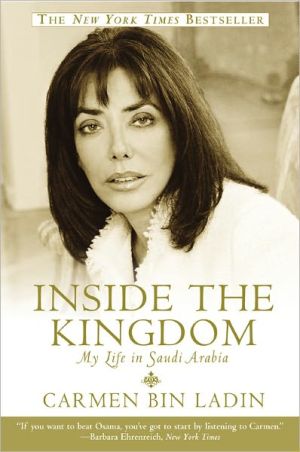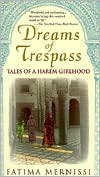Muhammad: A Prophet for Our Time (Eminent Lives Series)
The Man Who Inspired the World's Fastest-Growing Religion\ \ Muhammad presents a fascinating portrait of the founder of a religion that continues to change the course of world history. Muhammad's story is more relevant than ever because it offers crucial insight into the true origins of an increasingly radicalized Islam. Countering those who dismiss Islam as fanatical and violent, Armstrong offers a clear, accessible, and balanced portrait of the central figure of one of the world's great...
Search in google:
Muhammad was born in 570 CE, and over the following sixty years built a thriving spiritual community, laying the foundations of a religion that changed the course of world history. There is more historical data on his life than on that of the founder of any other major faith, and yet his story is little known. Karen Armstrong's immaculately researched new biography of Muhammad will enable readers to understand the true origins and spirituality of a faith that is all too often misrepresented as cruel, intolerant, and inherently violent. An acclaimed authority on religious and spiritual issues, Armstrong offers a balanced, in-depth portrait, revealing the man at the heart of Islam by dismantling centuries of misconceptions. Armstrong demonstrates that Muhammad's life--a pivot point in history--has genuine relevance to the global crises we face today. The New York Times - Laurie Goodstein To glimpse how the vast majority of the world's Muslims understand their prophet and their faith, Karen Armstrong's short biography is a good place to start. The volume is part of a series called "Eminent Lives": small profiles of big-name subjects by big-name authors. Ms. Armstrong, best known for A History of God, is a scholar and a former nun with a genius for presenting religions as products of temporal forces - like geography, culture and economics - without minimizing the workings of transcendent spiritual forces.
\ \ Muhammad\ \ \ \ A Prophet for Our Time\ \ \ \ By Karen Armstrong\ \ \ HarperCollins Publishers, Inc.\ \ \ \ Copyright © 2006\ \ Karen Armstrong\ All right reserved.\ \ ISBN: 0060598972\ \ \ Chapter One\ Mecca\ \ Afterwards he found it almost impossible to describe the experience that sent him running in anguish down the rocky hillside to his wife. It seemed to him that a devastating presence had burst into the cave where he was sleeping and gripped him in an overpowering embrace, squeezing all the breath from his body. In his terror, Muhammad could only think that he was being attacked by a jinni, one of the fiery spirits who haunted the Arabian steppes and frequently lured travellers from the right path. The jinn also inspired the bards and soothsayers of Arabia. One poet described his poetic vocation as a violent assault: his personal jinni had appeared to him without any warning, thrown him to the ground and forced the verses from his mouth.1 So, when Muhammad heard the curt command "Recite!" he immediately assumed that he too had become possessed. "I am no poet," he pleaded. But his assailant simply crushed him again, until--just when he thought he could bear it no more--he heard the first words of a new Arabic scripture pouring, as if unbidden, from his lips.\ He had this vision during the month of Ramadan, 610 CE. Later Muhammad would call it layla al-qadr (the "Night of Destiny") because it had made him the messenger of Allah, the high god ofArabia. But at the time, he did not understand what was happening. He was forty years old, a family man, and a respected merchant in Mecca, a thriving commercial city in the Hijaz. Like most Arabs of the time, he was familiar with the stories of Noah, Lot, Abraham, Moses, and Jesus and knew that some people expected the imminent arrival of an Arab prophet, but it never occurred to him that he would be entrusted with this mission. Indeed, when he escaped from the cave and ran headlong down the slopes of Mount Hira', he was filled with despair. How could Allah have allowed him to become possessed? The jinn were capricious; they were notoriously unreliable because they delighted in leading people astray. The situation in Mecca was serious. His tribe did not need the dangerous guidance of a jinni. They needed the direct intervention of Allah, who had always been a distant figure in the past, and who, many believed, was identical with the God worshipped by Jews and Christians.*\ Mecca had achieved astonishing success. The city was now an international trading center and its merchants and financiers had become rich beyond their wildest dreams. Only a few generations earlier, their ancestors had been living a desperate, penurious life in the intractable deserts of northern Arabia. Their triumph was extraordinary, since most Arabs were not city dwellers but nomads. The terrain was so barren that people could only survive there by roaming ceaselessly from place to place in search of water and grazing land. There were a few agricultural colonies on the higher ground, such as Ta'if, which supplied Mecca with most of its food, and Yathrib, some 250 miles to the north. But elsewhere farming--and, therefore, settled life--was impossible in the steppes, so the nomads scratched out a meagre existence by herding sheep and goats, and breeding horses and camels, living in close-knit tribal groups. Nomadic (badawah) life was a grim, relentless struggle, because there were too many people competing for too few resources. Always hungry, perpetually on the brink of starvation, the Bedouin fought endless battles with other tribes for water, pastureland, and grazing rights.\ Consequently the ghazu (acquisition raid) was essential to the badawah economy. In times of scarcity, tribesmen would regularly invade the territory of their neighbors in the hope of carrying off camels, cattle, or slaves, taking great care to avoid killing anybody, since this could lead to a vendetta. Nobody considered this in any way reprehensible. The ghazu was an accepted fact of life; it was not inspired by political or personal hatred, but was a kind of national sport, conducted with skill and panache according to clearly defined rules. It was a necessity, a rough-and-ready way of redistributing wealth in a region where there was simply not enough to go around.\ Even though the people of Mecca had left the nomadic life behind, they still regarded the Bedouin as the guardians of authentic Arab culture. As a child, Muhammad had been sent to live in the desert with the tribe of his wet nurse in order to be educated in the badawah ethos. It made a profound impression on him. The Bedouin were not very interested in conventional religion. They had no hope of an afterlife and little confidence in their gods, who seemed unable to make any impact on their difficult environment. The tribe, not a deity, was the supreme value, and each member had to subordinate his or her personal needs and desires to the well-being of the group, and fight to the death, if necessary, to ensure its survival. Arabs had little time for speculation about the supernatural but were focused on this world. Fantasy was useless in the steppes; they needed pragmatic, sober realism. But they had evolved a chivalric code, which, by giving meaning to their lives and preventing them from succumbing to despair in these harsh conditions, performed the essential function of religion. They called it muruwah, a complex term that is difficult to translate succinctly. Muruwah meant courage, patience, endurance; it consisted of a dedicated determination to avenge any wrong done to the group, to protect its weaker members, and defy its enemies. To preserve the honor of the tribe, each member had to be ready to leap to the defense of his kinsmen at a moment's notice and to obey his chief without question.\ Above all, a tribesman had to be generous and share his livestock and food. Life in the steppes would be impossible if people selfishly hoarded their wealth while others went hungry. A tribe that was rich today could easily become destitute tomorrow . . . .\ \ Continues...\ \ \ \ \ \ \ Excerpted from Muhammad\ by Karen Armstrong\ Copyright © 2006 by Karen Armstrong.\ Excerpted by permission.\ All rights reserved. No part of this excerpt may be reproduced or reprinted without permission in writing from the publisher.\ Excerpts are provided by Dial-A-Book Inc. solely for the personal use of visitors to this web site.\ \ \
\ From Barnes & NobleMuhammad (570-632) died 1,374 years ago, but his life, his teachings, and his legacy still remain vibrant topics for discussion and debate. Famed religion historian Karen Armstrong enhances the Eminent Lives series with this carefully researched biography of the final Prophet of Islam. She notes that although more historical data exists on his life than that of the founder of any other major faith, that plethora of information has not prevented innumerable misunderstandings, errors, and outright distortions. Muhammad: The Prophet for Our Time moves back in time, beyond deadly ideological wars, to the life of a merchant who became one of the most important men in history.\ \ \ \ \ Wall Street JournalKaren Armstrong’s sympathetic profile paints a portrait of a very human prophet\ \ \ New York TimesA good glimpse of how the vast majority of the world’s Muslims understand their prophet.\ \ \ \ \ The EconomistRespectful, knowledgeable, and, above all, readable. It succeeds because [Armstrong] brings Muhammad to life as a fully rounded human being.\ \ \ \ \ New York TimesA good glimpse of how the vast majority of the world’s Muslims understand their prophet.\ \ \ \ \ Wall Street JournalKaren Armstrong’s sympathetic profile paints a portrait of a very human prophet\ \ \ \ \ Laurie GoodsteinTo glimpse how the vast majority of the world’s Muslims understand their prophet and their faith, Karen Armstrong’s short biography is a good place to start. The volume is part of a series called “Eminent Lives”: small profiles of big-name subjects by big-name authors.\ Ms. Armstrong, best known for A History of God, is a scholar and a former nun with a genius for presenting religions as products of temporal forces — like geography, culture and economics — without minimizing the workings of transcendent spiritual forces.\ — The New York Times\ \ \ \ \ \ Library JournalAnyone reflecting on the current world climate of intolerance would agree that it's impossible to have too many enlightening books on Muhammad and his spiritual legacy. Written for educated lay readers, this entry in the "Eminent Lives" series is a briefer post-9/11 update of Armstrong's insightful Muhammad: A Biography of the Prophet (1991). Five fast-paced chapters cover Mecca, Jahiliyyah (time of ignorance), Hijrah (migration to Medina), Jihad, and Salam (peace). Readers of these pages cannot escape the genius of Muhammad and his aim for peace and compassion among nations and among Muslims themselves: "Muslim must never fight against Muslim." Armstrong makes a strong appeal to the nations and religions of the world "not merely [to] tolerate but to appreciate one another." Clearly, Muhammad is a prophet for our time, and inhabitants of this unstable planet must take his words to heart if our species is to survive. Recommended for all libraries.-Gary P. Gillum, Brigham Young Univ., Provo, UT Copyright 2006 Reed Business Information.\ \
